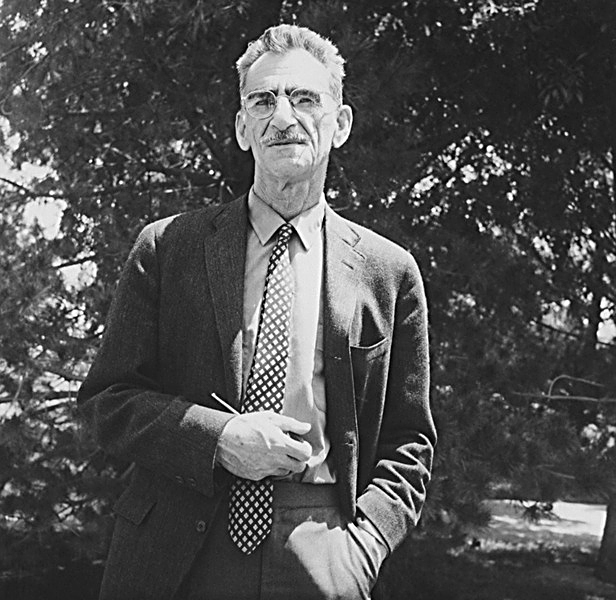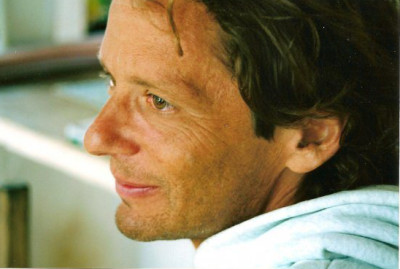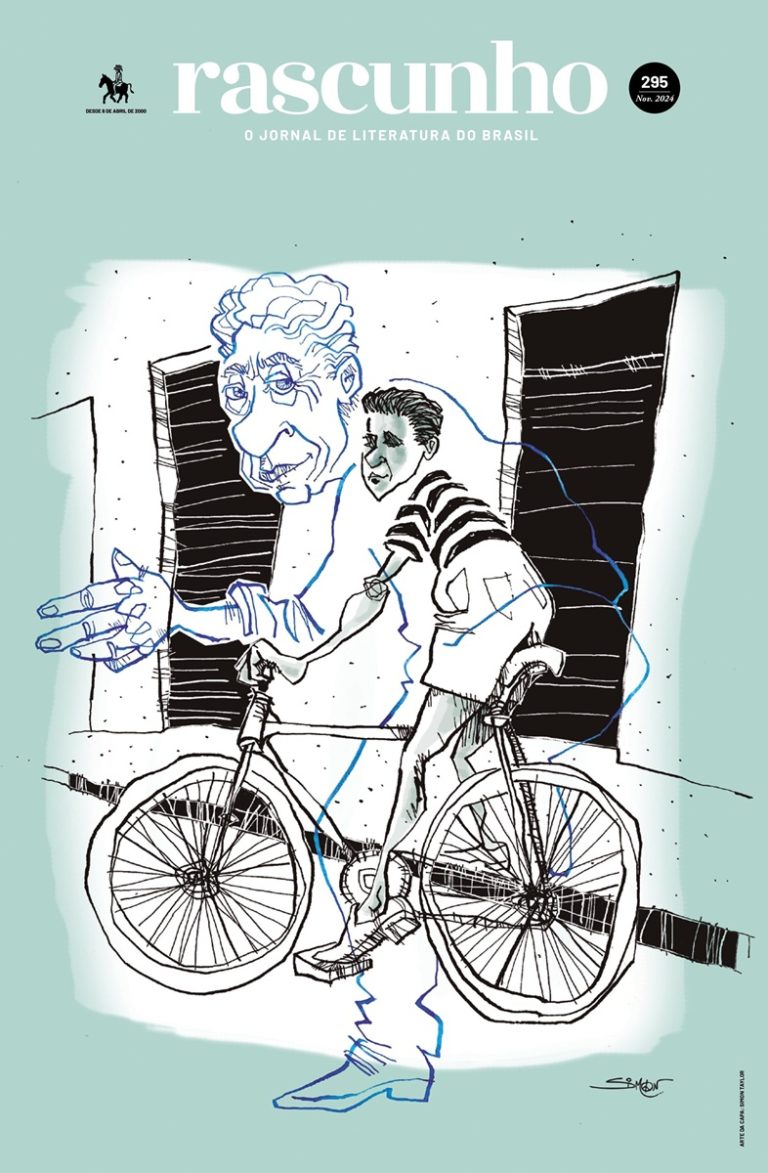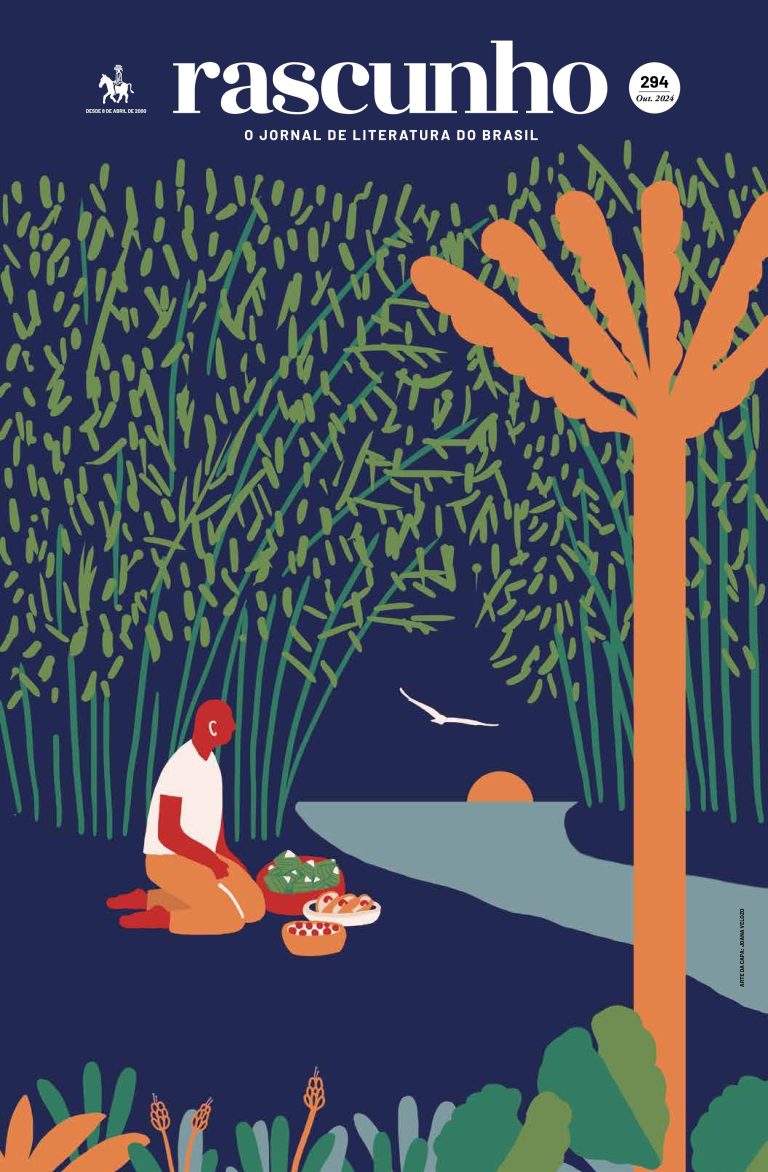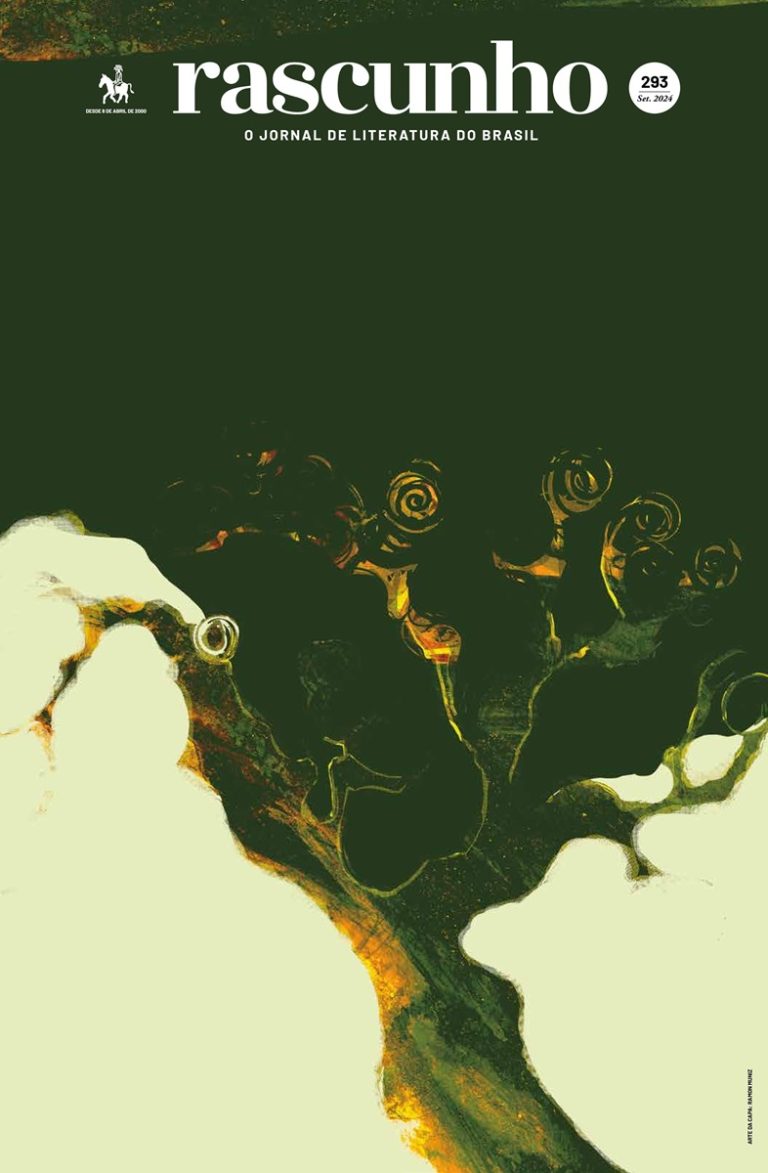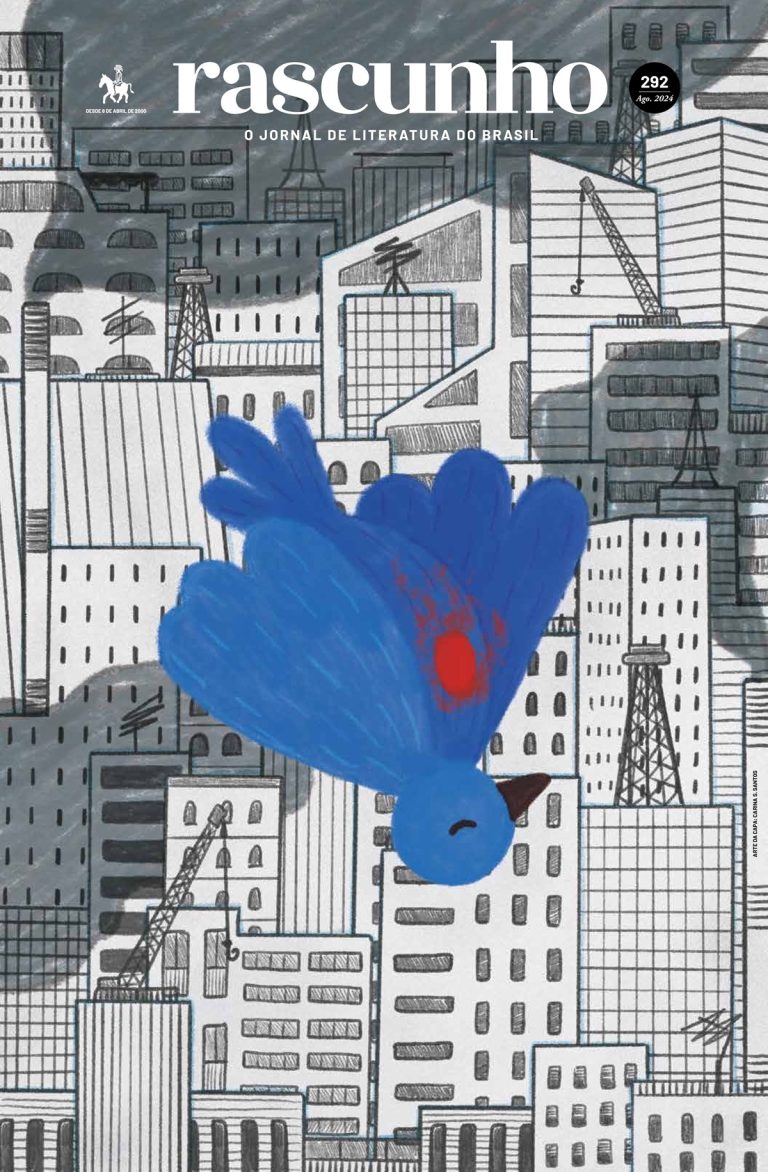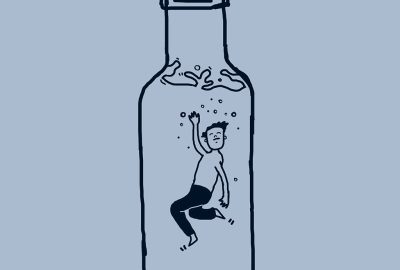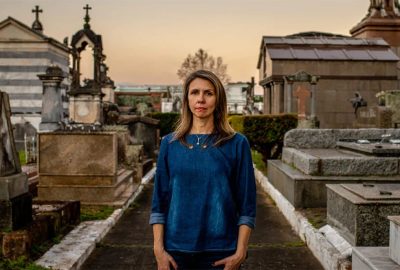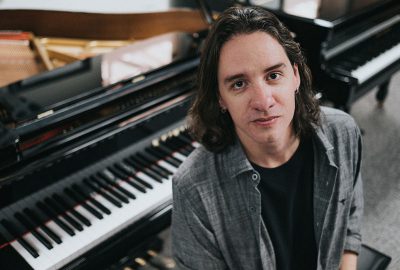Tradução e seleção: André Caramuru Aubert
The impossible poem
Climbing the peak of Tamalpais the loose
Gravel underfoot
And the city shining with tremendous wrinkles
In the hills and the winding of the bay
Behind it, it faces the bent ocean
Streetcars
Rocked thru the city and the winds
Combed their clumsy sides
In clumsy times
Sierras withering
Behind the storefronts
And sanity the roadside weed
Dreams of sports and sportsmanship
In the lucid towns paralyzed
Under the truck tires
Shall we relinquish
Sanity to redeem
Fragments and fragmentary
Histories in the towns and the temperate streets
Too shallow still to drown in or to mourn
The courageous and precarious children
O poema impossível
Escalando o pico de Tamalpais o cascalho
Solto sob os pés
E a cidade brilhando em suas tremendas rugas
Nas colinas e no vento da baía
Atrás, ela encara o arqueado oceano
Bondes
Disparados pela cidade e os ventos
Penteando seus desajeitados lados
Em desajeitados tempos
Sierras definhando
Atrás das fachadas das lojas
E sanidade, ervas de beira de estrada
Sonha com esportes e esportividade
Nas cidades claras, paralisados
Sob os pneus dos caminhões
Nós deveremos renunciar
Sanidade para redimir
Fragmentos e fragmentadas
Histórias nas cidades e nas ruas temperadas
Rasas demais para afogar ou para lamentar
Os corajosos e precários filhos
…..
But so as by fire
The darkness of trees
Guards this life
Of the thin ground
That covers the rock ledge
Among the lanes and magic
Of the Eastern woods
The beauty of silence
And broken boughs
And the homes of small animals
The green leaves
Of young plants
Above the dark green moss
In the sweet smell of rot
The pools and the trickle of freshwater
First life, rotting life
Hidden starry life it is not yet
A mirror
Like our lives
We have gone
As far as is possible
Whose lives reflect light
Like mirrors
One had not thought
To be afraid
Not of shadow but of light
Summon one’s powers
Mas então quase pelo fogo
A escuridão das árvores
Guarda a vida
Do solo fino
Que cobre a ponta da rocha
Entre as alamedas e a magia
Das florestas do leste
A beleza do silêncio
E galhos quebrados
E os lares dos pequenos animais
As folhas verdes
Das plantas jovens
Acima do verde-escuro do musgo
No doce odor da decomposição
As piscinas e as cachoeiras de água fresca
Vida nova, vida se decompondo
Escondida estrelada vida não é ainda
Um espelho
Como nossas vidas
Nós fomos
Tão longe quanto possível
Cujas vidas refletem a luz
Como espelhos
Ninguém pensou
Em ter medo
Não da sombra mas da luz
Invocando a própria força
…..
Birthplace: New Rochelle
Returning to that house
And the rounded rocks of childhood — They have lasted well.
A world of things.
An aging man,
The knuckles of my hand
So jointed! I am this?
The house
My father’s once, and the ground. There is a color of his times
In the sun’s light.
A generation’s mark.
It intervenes. My child,
Not now a child, our child
Not altogether lone in a lone universe that suffers time
Like stones in sun. For we do not.
Cidade natal: New Rochelle
Regressando àquela casa
E às pedras arredondadas da infância — Elas sobreviveram bem.
Um mundo de coisas.
Um homem envelhecido,
As articulações da minha mão
Tão cheias de nós! Eu sou isso?
A casa
De meu pai, antes, e o chão. Há uma cor dos tempos dele
Sob a luz do sol.
A marca de uma geração.
Intervém. Minha criança,
Não mais uma criança, nossa criança
Não de todo perdida num universo perdido que sofre o tempo
Como pedras no sol. Porque nós não.
…..
Niece
The streets of San Francisco,
She said of herself, were my
Father and mother, speaking to the quiet guests
In the living room looking down the hills
To the bay. And we imagined her
Walking in the wooden past
Of the western city… her mother
Was not that city
But my elder sister. I remembered
The watchman at the beach
Telling us the war had ended ––
That was the first world war
Half a century ago — my sister
Had a ribbon in her hair.
Sobrinha
As ruas de São Francisco,
Ela disse de si mesma, eram meu
Pai e minha mãe, falando a hóspedes calados
Na sala com vista para as colinas que descem
Para a baía. E nós imaginamos
Caminhando no passado de madeira
Da cidade oriental… sua mãe
Não era aquela cidade
Mas minha irmã mais velha. Eu me lembrei
Do vigia na praia
Nos dizendo que a guerra tinha acabado ––
Aquela era a primeira guerra mundial
Meio século atrás — minha irmã
Tinha uma faixa no cabelo.
…..
From disaster
Ultimately the air
Is bare sunlight where must be found
The lyric valuables. From disaster
Shipwreck, whole families crawled
To the tenements, and there
Survived by what morality
Of hope
Which for the sons
Ends its metaphysic
In small lawns of home.
Do desastre
Ultimamente o ar
É mera luz do sol onde podem ser encontradas
As preciosidades líricas. Do desastre
Naufrágio, famílias inteiras se arrastaram
Para os abrigos, e lá
Sobreviveram por alguma moralidade
De esperança
Que para os filhos
Termina em metafísica
Em pequenos gramados de casa.
…..
O western wind
A world around her like a shadow
She moves a chair
Something is being made —
Prepared
Clear in front of her as open air
The space a woman makes and fills
After these years
I write again
Naturally, about your face
Beautiful and wide
Blue eyes
Across all my vision but the glint of flesh
Blue eyes
In the subway routes, in the small rains
The profiles.
Ó vento oeste
Um mundo em volta dela como uma sombra
Ela move uma cadeira
Alguma coisa está sendo feita––
Preparada
Clara na frente dela como o ar aberto
O espaço que uma mulher cria e preenche
Após esses anos
Eu novamente escrevo
Naturalmente, sobre seu rosto
Bonito e amplo
Olhos azuis
Através de minha visão sem o cintilar da carne
Olhos azuis
Nas linhas do metrô, nas chuvas fracas
Os perfis.
…..
Pedestrian
What generations could have dreamed
This grandchild of the shopping streets, her eyes
In the buyer’s light, the store lights
Brighter than the lighthouses, brighter than moonrise
From the salt harbor so rich
So bright her city
In a soil of pavement, a mesh of wires where she walks
In the new winter among enormous buildings.
Pedestre
Que gerações poderiam ter sonhado
Esta neta das ruas de compras, seus olhos
Na luz de quem compra, as luzes das lojas
Mais brilhantes que os faróis no mar, mais que o nascer da lua
Da baía salgada tão rica
Tão brilhante sua cidade
Num solo pavimentado, uma confusão de fios por onde ela anda
No novo inverno em meio a edifícios enormes.
…..
Blood from the Stone
I
In the door,
Long legged, tall,
A weight of bone and flesh to her —
Her eyes catch —
Carrying bundles. O!
Everything I am is
Us. Come home.
II
The Thirties. And
A spectre
In every street,
In all inexplicable crowds, what they did then
Is still their lives.
As thirty in a group —
To Home Relief — the unemployed —
Within the city’s intricacies
Are these lives. Belief?
What do we believe
To live with? Answer.
Not invent — just answer — all
That verse attempts.
That we can somehow add each to each other?
— Still our lives.
III
And war.
More than we felt or saw.
There is a simple ego in a lyric,
A strange one in war.
To a body anything can happen,
Like a brick. Too obvious to say.
But all horror came from it.
The need
To see past every rock, wall, forest
Among so many, carrying in its frightful danger
The brick body as in one’s hands.
And rounding the corner of some wall
Into a farm yard — France —
The smell of wood-smoke from the kitchen;
An overwhelming sense of joy!
Stops everything. More still than the water trickling among the cobbles.
In boots. Steel helmet. Monstrous. Standing
Shut by the silent walls.
IV
Fifty years
Sidereal time
Together, and among the others,
The bequeathed pavements, the inherited lit streets:
Among them we were lucky — strangest word.
The planet’s
Time.
Blood from a stone, life
From a stone dead dam. Mother
Nature! because we find the others
Deserted like ourselves and therefore brothers. Yet
So we lived
And chose to live
These were our times.
Sangue tirado da Pedra
I
Na porta,
Pernas longas, alta,
Uma medida de ossos e carne para ela —
Seus olhos captam —
Carregando pacotes. Ó!
Tudo o que eu sou somos
Nós. Venha para casa.
II
Os anos trinta. E
Um espectro
Em cada rua,
Em todas as inexplicáveis multidões, o que eles fizeram então
É ainda a vida deles.
Como trinta num grupo —
Para o Home Relief[1] — os desempregados —
Dentro das complicações da cidade
São estas vidas? Acredita?
No que nós acreditamos
Ser preciso ter para viver? Responda.
Não invente — apenas responda —
Aquele verso procura.
Que nós podemos de alguma forma acrescentar cada um uns aos outros?
— Ainda as nossas vidas.
III
E Guerra.
Mais do que nós sentimos ou vimos.
Existe um ego simples num poema,
Um bem estranho na Guerra.
Para um corpo qualquer coisa pode acontecer,
Como um tijolo. Óbvio demais para dizer.
Mas todo o horror vem daí.
A necessidade
De olhar para trás cada pedra, muro, floresta
Entre tantas, levando sem si seus perigos horrendos
O corpo de tijolos como se nas mãos de alguém.
E contornando a esquina de algum muro
No quintal de uma fazenda — França —
O cheiro de lenha queimando na cozinha;
Uma enorme sensação de prazer!
Para tudo. Mais imóvel que água escorrendo sobre as pedras.
De botas. Capacete de aço. Monstruoso. De pé
Atingido pelas paredes silenciosas.
IV
Cinquenta anos
Tempo sideral
Juntos, e entre os outros,
Os pavimentos deixados em testamento, as ruas iluminadas que herdamos:
Entre eles nós tivemos sorte –– estranho mundo.
O tempo do
Planeta.
Sangue de uma pedra, vida
De uma represa de pedra, morta. Mãe
Natureza! porque nós vimos desertos os
Outros, como nós mesmos e portanto irmãos. Ainda
Então nós vivemos
E escolhemos viver
Aqueles eram os nossos tempos.
[1] Home Relief foi um programa emergencial de bem estar social implantado nos Estados Unidos pelo governo Roosevelt, em 1933, durante a Grande Depressão, como parte do New Deal.

